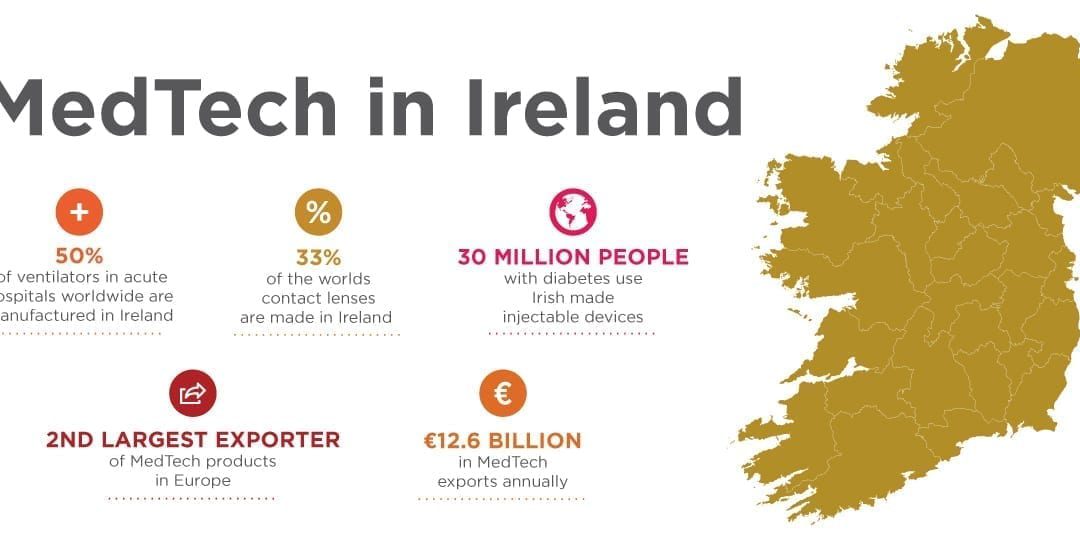Continual development and innovation in medical devices is crucial to ensuring the quality of life in Ireland and around the world. Medical devices enable healthcare professionals to detect diseases earlier, and diagnoses, treatment and patient monitoring are relentlessly improved. Breakthroughs and refinements in medical device technology have also been crucial for reducing healthcare costs at a time when health services worldwide seem to be under greater financial pressure than ever.
There are many reasons why someone might wish to work in the medical device industry – a curiosity for new technology and a passion for caring for sick patients are among the most popular. When working in the medical device industry, your innovation and hard work can improve the lives of thousands – if not tens of thousands – of people.
Ireland’s reputation as a global hub is well established, with 18 of the world’s top 25 med-tech companies based here. The medical device industry in Ireland has seen tremendous growth in recent years, from 50 companies in the early 1990s to well over 450 in 2017. Ireland has become one of Europe’s largest medtech hubs, employing over 29,000 people and creating thousands of jobs in manufacturing, engineering, research and development, and sales, positively impacting the Irish economy.
Several factors have contributed to the continued expansion of the medical device industry in Ireland, including:
- A favourable corporate tax regime.
- A highly educated workforce.
- A strong pool of scientific research talent.
- Access to EU markets.
- Strong infrastructure and transport links.
Challenges facing the medical device industry
The COVID-19 pandemic negatively impacted various industries around the world. One of the most affected were STEM professionals whose research was impacted by the pandemic, resulting in fewer grants, patents, and publications and disrupting student learning, especially in skills development. More concerning was the prediction that young STEM professionals would feel the most severe consequences.
Speaking at last year’s National Economic Dialogue conference, Minister for Further and Higher Education, Research, Innovation and Science Simon Harris forewarned severe skills shortages within the STEM sector. He cited research carried out by the Solas, which found there was a particular skills shortage in the STEM industry.
“It is vital as we seek to rebuild post-pandemic that people are retrained and reskilled in areas where there are skills shortages or in areas where there will be economic growth,” he said. His comments came after he announced the provision of 10,000 free places on almost 300 Springboard+ courses. He also outlined plans to develop a new pact with businesses across the country to address the issues and upskill those whose jobs are unlikely to return post-pandemic and prepare technological universities for the future. We need to see more incentives like this across Ireland.
If we do not start to improve STEM uptake at university and graduate levels, as well as apprenticeships for engineering and healthcare professionals, we will soon run out of talent. The government, educational institutions, and the medical device industry must start working together to develop the next generation of talent who will create domestic medical device businesses.
Here at Independent Search Solutions Ltd, we work with a range of companies to help them find graduates and associate-level personnel. However, the industry needs to offer more of these roles.
If you are in the Medical Device Industry and are struggling to find the right talent, get in contact.
Patrick Fitzmaurice
p.fitzmaurice@independentsearchsolutions.com
00353 (0) 87 25 35 247







